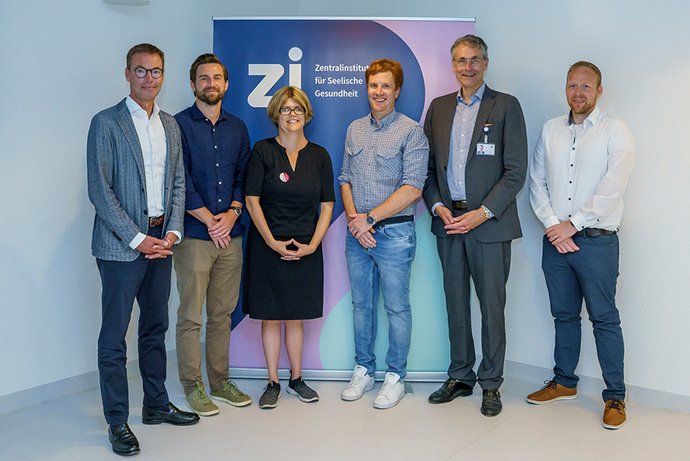“We are delighted to be able to make such a tangible contribution with our donation,” said Jonas Becker, Past-President of Round Table 63 Speyer, at a meeting with the Board of Directors of the CIMH and Prof. Dr. Anne Koopmann, Senior Physician at the CIMH and co-initiator of Stark im Sturm. Prof. Dr. Andreas Meyer-Lindenberg, Chairman of the Board of the CIMH, pointed out how important it is to focus on the children of mentally ill and addicted parents. There are around 5 million children in Germany who live with a parent who is ill. Around a third of them develop a serious mental illness themselves in the course of their lives. “Mental illnesses are passed on from generation to generation,” said Meyer-Lindenberg.
Stark im Sturm systematically ensures that attention is paid to the children of mentally ill and addicted parents in psychiatric clinics. Children's representatives, who are appointed to all wards, play a central role in this. They speak to parents about their children's situation, allay their fears and worries, offer them support and connect them with family support services. Stark im Sturm was founded in 2018 by Prof. Dr. Anne Koopmann and Prof. Dr. Yvonne Grimmer, a social physician and specialist in child and adolescent psychiatry. The concept is now also firmly established at four other clinics in Baden-Württemberg. "Our aim is to become part of standard care in Germany. In future, every psychiatric clinic in Germany must have child representatives," emphasized Koopmann.
Andreas-W. Möller, Commercial Director of the CIMH, emphasized the importance of donations for research and patient care: "We can only provide many innovative impulses because charitable organizations, foundations or individuals provide us with direct funding. We are delighted that Round Table Speyer has now become part of this community." Thanks to the donation, family rooms or areas will be set up at all participating clinics by the end of 2025. There, parents undergoing therapy can come together with their children in a pleasant and child-friendly atmosphere. Such an environment helps children and parents alike to overcome fears and reservations. After all, shame, feelings of guilt, taboos and isolation are still serious obstacles that prevent parents from opening up to their children and seeking help together.


